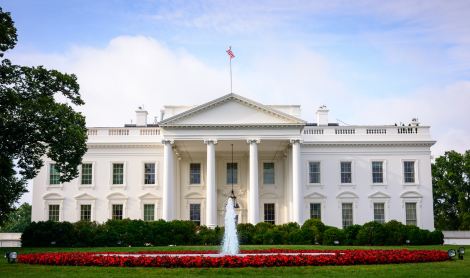As you may know, part of the federal stimulus packages that were passed in response to the COVID-19 pandemic is a federal loan program: The Paycheck Protection Program (PPP). This program provides short-term loans to help non-profit organizations, small businesses, and independent contractors continue to pay expenses such as payroll, rent, utilities, and other essential costs.
The Small Business Administration (SBA) made approximately $669 billion available for PPP loans. To be deemed eligible, entities had to attest they faced serious financial impact from COVID-19. Some charter schools applied for, and received, a PPP loan because COVID-19 introduced a variety of new, unexpected costs putting their financial health at risk.
As soon as this evening, the SBA will be releasing a list of organizations that received PPP funding. Charter schools you authorize may be on this list. We will be sharing this list once it becomes public. We at NACSA want to ensure you have the information and resources necessary to continue the important work of financial oversight of the schools in your portfolio.
PPP and the Authorizer’s Role
Fundamentally, a PPP loan is a private low-interest loan taken out by the charter school’s governing board. In obtaining and repaying the loan, or pursuing the opportunity for loan forgiveness, the charter school governing board must adhere to the bank’s requirements and the terms of PPP.
Your role with the PPP, as the authorizer, will be similar to your oversight role concerning other financial agreements between charter school governing boards and lenders. If one of your charter schools has received a loan, you may wish to:
- Be notified of the loan amount and terms
- Understand if the charter school governing board intends to consider it a loan, or if it is considering applying for loan forgiveness
- Incorporate the loan amount into the charter school’s debt ratio and funding reserve amount, with appropriate allowances for the loan’s low interest rate, government backing, and potential for loan forgiveness
- Incorporate the charter school governing board’s oversight and use of PPP funds into your regular monitoring of the school’s organizational procedures, similar to how you might check in annually on the monitoring and compliance mechanisms the charter school has in place with any other large loan or grant
Responding to Inquiries About PPP Funding
As the list of PPP recipients becomes public, you may receive questions about a charter school in your portfolio receiving PPP funds from the media or your community. We encourage you to be prepared to answer the questions. Here are two sample questions and responses:
- Should charter schools, charter management organizations, or education management organizations have applied for funds made available through the Paycheck Protection Program (PPP) administered by the Small Business Administration (SBA)? Charter school governing boards, as 501c3 non-profits, were eligible to apply for PPP loans. The decision to apply for the program through their bank would have been made by the charter school governing board.
- What are authorizers doing to oversee charter schools who receive PPP funding? As with all significant financial transactions, it is best practice for the charter school governing board to notify the authorizer of the receipt of a loan of a significant size. This helps the authorizer to ensure it can continue to monitor the financial health of the charter school. Authorizers should then incorporate the school’s receipt of a PPP loan into their regular oversight activities, just as would be done with any other large loan or grant that the charter school receives. Fundamentally, the bank that issued the loan and the SBA will be the first line of oversight for all PPP loans. But authorizers allow for an added layer of oversight.
The Bottom Line
While there are many differing opinions about whether charter schools should be eligible for the PPP, we understand the responsibility authorizers have in overseeing the financial health of the charter schools in their portfolio.
The National Alliance for Public Charters Schools has shared additional information about PPP and the CARES Act.


